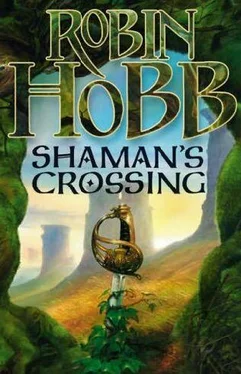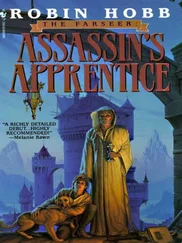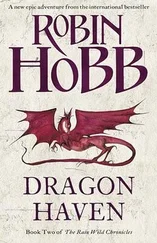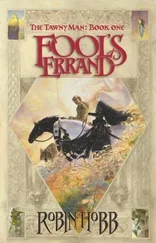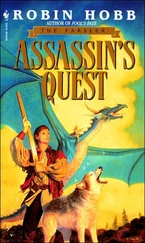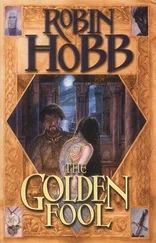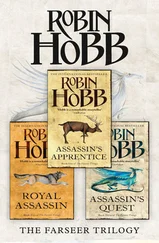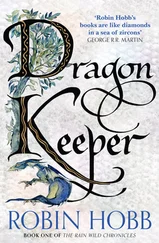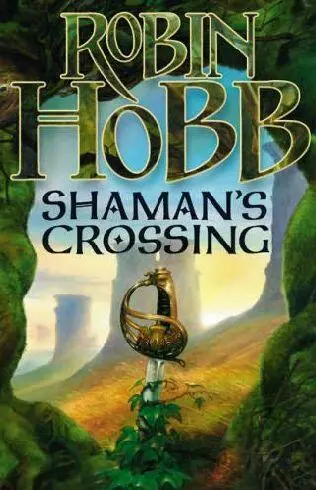
Soldier Son 01
Shaman’s Crossing
By
Robin Hobb
Dedication
To Caffeine and Sugar, my companions through many a long night of writing.
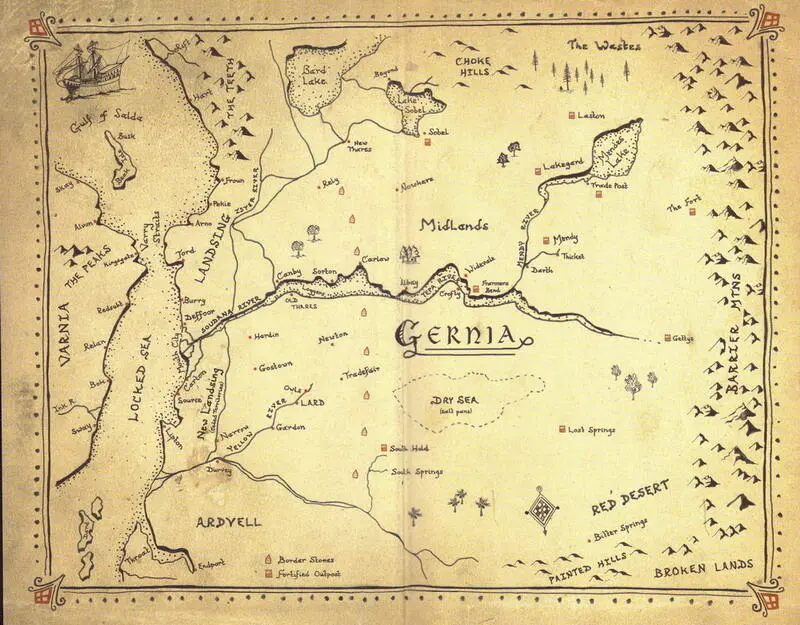
CHAPTER ONE
Magic and Iron
I remember well the first time I saw the magic of the plainspeople.
I was eight and my father had taken me with him on a trip to the outpost on Franner’s Bend. We had arisen before the dawn for the long ride; the sun was just short of standing at noon when we finally saw the flag waving over the walls of the outpost by the river. Once, Franner’s Bend had been a military fort on the contested border between the plainspeople and the expanding Kingdom of Gernia. Now it was well within the Gernian border, but some of its old martial glory persisted. Two great cannons guarded the gates, but the trade stalls set up against the mud-plastered stockade walls behind them dimmed their ferocity. The trail we had followed from Widevale now joined a road that picked its way among the remains of mud-brick foundations. Their roofs and walls were long gone, leaving the shells gaping at the sky like empty tooth sockets in a skull. I looked at them curiously as we passed, and dared a question. “Who used to live here?”
“Plainspeople,” Corporal Parth said. His tone said that was his full reply. Rising early did not suit his temperament, and I suspected already that he blamed me for having to get out of bed so early.
I held my tongue for a time, but then the questions burst out of me ‘Why are all the houses broken and gone? Why did they leave? I thought the plainspeople didn’t have towns. Was this a plains-people town?”
“Plainspeople don’t have towns, they left because they left, and the houses are broken because the plainspeople didn’t know how to build any better than a termite does.” Parth’s low-voiced answer implied that I was stupid for asking.
My father has always had excellent hearing. “Nevare,” he said.
I nudged my horse to move up alongside my father’s taller mount. He glanced at me once, I think to be sure I was listening, and then said, “Most plainspeople did not build permanent towns. But some, like the Bejawi folk had seasonal settlements. Franner’s Bend was one of them. They came with their flocks during the driest part of the year, for there would be grazing and water here. But they didn’t like to live for long in one place, and so they didn’t build to last. At other times of the year, they took their flocks out onto the plains and followed the grazing.”
“Why didn’t they stay here and build something permanent?”
“It wasn’t their way, Nevare. We cannot say they didn’t know how, for they did build monuments in various locations that were significant to them, and those monuments have weathered the tests of time very well. One day I shall take you to see the one named Dancing Spindle. But they did not make towns for themselves as we do, or devise a central government or provide for the common good of their people. And that was why they remained a poor, wandering folk, prey to the Kidona raiders and to the vagaries of the seasons. Now that we have settled the Bejawi and begun to teach them how to have permanent villages and schools and stores, they will learn to prosper.”
I pondered this. I knew the Bejawi. Some of them had settled near the north end of Widevale, my father’s holdings. I’d been to the settlement once. It was a dirty place, a random tumble of houses without streets, with rubbish and sewage and offal scattered all around it. I hadn’t been impressed. As if my father could hear my thoughts, he said, “Sometimes it takes a while for people to adapt to civilization. The learning process can be hard. But in the end it will be of great benefit to them. The Gernian people have a duty to lift the Bejawi folk and help them learn civilized ways.”
Oh, that I understood. Just as struggling with mathematics would one day make me a better soldier. I nodded and continued to ride at his stirrup as we approached the outpost.
The town of Franner’s Bend had become a traders’ rendezvous, where Gernian merchants sold overpriced wares to homesick soldiers and purchased hand-made plainsworked goods and trinkets from the bazaar for the city markets in the west. The military contingent had a barracks and headquarters there which was still the heart of the town but the trade had become the new reason for its existence. Outside the fortified walls a little community had sprung up around the riverboat docks. A lot of common soldiers retired there, eking out their existence with hand-outs from their younger comrades. Once, I suppose, the fort at Franner’s Bend had been of strategic importance. Now it was little more than another back-water on the river. The flags were still raised daily with military precision and a great deal of ceremony and pomp. But, as my father told me on the ride there, duty at Franner’s Bend was a ‘soft post’ now, a plum given to older or incapacitated officers who did not wish to retire to their family homes yet.
Our sole reason for visiting was to determine if my father would win the military contract for sheepskins to use as saddle padding. My family was just venturing into sheep herding at that time, and he wished to assess the market potential for them before investing too heavily in the silly creatures. Much as he detested playing the merchant, he told me, as a new noble he had to establish the investments that would support his estate and allow it to grow. “I’ve no wish to hand your brother an empty title when he comes of age. The future Lord Burvelles of the East must have income to support a noble lifestyle. You may think that has nothing to do with you, young Nevare, since as a second son you will go to be a soldier. But when you are an old man, and your soldiering days are through, you will come home to your brother’s estate to retire. You will live out your days at Widevale, and the income of the estate will determine how well your daughters will marry, for it is the duty of a noble first son to provide for his soldier brother’s daughters. It behooves you to know about these things.”
I understood little, then, of what he was telling me. Of late, he talked to me twice as much as he ever had, and I felt I understood only half as much of what he said. He had only recently parted me from my sisters’ company and their gentle play. I missed them tremendously, as I did my mother’s attentions and coddling. The separation had been abrupt, following my father’s discovery that I spent most of my afternoons playing ‘tea-party’ in the garden with Elisi and Yaril, and had even adopted a doll as my own to bring to the nursery festivities. Such play alarmed my father for reasons my eight year-old mind could not grasp. he had scolded my mother in a muffled ‘discussion’ behind the closed doors of the parlour, and instantly assumed total responsibility for my upbringing. My schoolbook lessons were suspended, pending the arrival of a new tutor he had hired. In the intervening days he kept me at his side for all sorts of tedious errands and constantly lectured me on what my life would be like when I grew up to be an officer in the King’s Cavallas. If I was not with my father, and sometimes even when I was, Corporal Parth supervised me.
The abrupt change had left me both isolated and unsettled. I sensed I had somehow disappointed my father, but was unsure of what I had done.
Читать дальше
